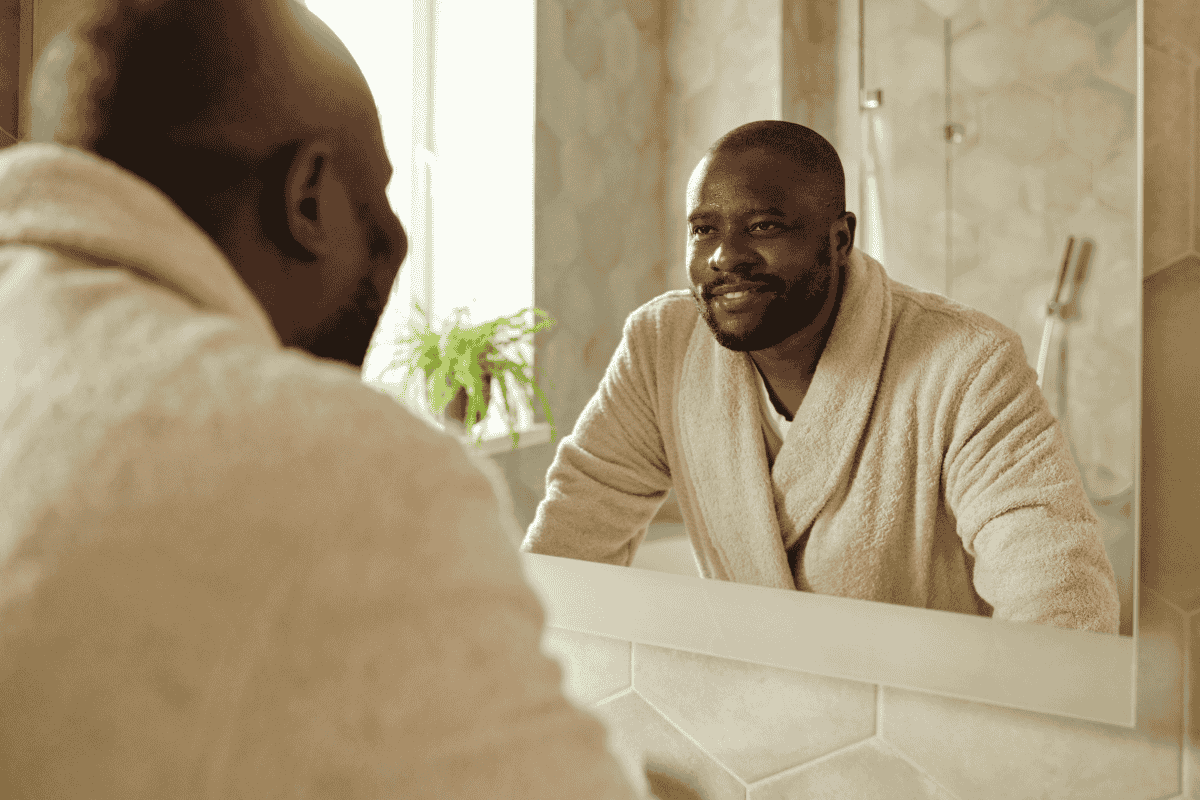Today, I’ve got a confession: I’m owning my narcissism. Don’t worry — I’m not about to start throwing plates or shouting at strangers. Mine’s the everyday, garden-variety narcissism you’ll probably recognise in yourself too. But instead of being horrified, I’m relieved. Stick with me, FNG, because this discovery turned out to be one of the best things that ever happened to my relationships — and to me.
The Path to Self-Awareness
The breakthrough didn’t arrive in a therapist’s chair or after some dramatic intervention. It came quietly, through reading. I’d been dipping into articles and books on personality traits, half out of curiosity, half for self-improvement. Then I stumbled across a description of narcissism that struck a nerve. It wasn’t the extreme, clinical stuff — it was the subtle, everyday tendencies. And there I was, practically nodding along.
Admitting “I’ve got narcissistic tendencies” didn’t sting. It was oddly comforting, like finally labelling a box I’d been lugging around for years. Better still, it gave me something unexpected: perspective. Suddenly, awkward silences, arguments, even my overuse of the word “I” stopped being a mystery and started being material. Life felt less heavy, and more like a pattern I could finally read.
Self-Regulation, Not Self-Condemnation
Most of us have a touch of narcissism — the key is spotting it without shame. Self-diagnosis is about noticing patterns and learning how to regulate them.
Tools That Help
- Journaling: Track moments when you dominated a conversation or felt defensive. Patterns soon emerge.
- Feedback: Ask a trusted friend how you come across. Be ready to listen without defending.
- Reading: Psychology books, blogs, or checklists can provide insight — but don’t mistake them for a diagnosis.
- Professional support: If your traits cause friction at home or at work, a therapist can help you navigate them safely.
The goal isn’t perfection. It’s clarity. Awareness can soften your edges, deepen your relationships, and make life feel lighter.
Narcissism Gets Terrible PR
Let’s be honest, narcissism has a branding problem. Mention the word and people picture a reality TV star shouting at a mirror.
And yet, as psychologist Dr Kostas Papageorgiou points out:
“While of course not all dimensions of narcissism are good, certain aspects can lead to positive outcomes.”
Narcissism lives on a spectrum:
- A sprinkle makes you confident.
- A spoonful makes you ambitious.
- A bucketful makes you unbearable.
Where do I sit? Somewhere between “too proud of my new trainers” and “overly keen to be right.” Not evil — just human.
Everyday Examples of My Narcissism
Here are ten highlights from the Greatest Hits of Me — complete with my own Narcissism Scorecard (because of course I’d rate myself):
- Mirror Magnet: If it reflects, I’m in it. Score: 9/10
- One-Upmanship: Whatever you’ve done, I’ve done bigger. Score: 6/10
- Advice Machine: Happy to advise on subjects I know nothing about. Score: 5/10
- Praise Junkie: Cook a meal? Applause expected. Score: 10/10
- Selfie Scholar: “Candid” shots of me thinking. Ten takes minimum. Score: 6/10
- Conversational Hijack: Your trip to Spain? Let’s talk about my Istanbul adventure. Score: 8/10
- Wardrobe Peacocking: A new jacket is basically a press release. Score: 7/10
- Name-Drop Ninja: “Did I mention the time I met…” (Yes. Twice.) Score: 5/10
- Drama Enthusiast: Minor inconveniences = Oscar monologue. Score: 8/10
- The Final Word: Even when I’m wrong, I win. Score: 9/10
Average score? A self-awarded 7.3 out of 10 on the Narcissism-o-Meter. Which, if you ask me, is impressive — though naturally, I would say that.
(Feel free to score yourself — though I’ll obviously win.)
Why I’m Weirdly Grateful
Narcissism, once acknowledged, has perks. Not a superpower, but handy in the right dose.
- It Keeps Me Entertaining: If life’s a stage, I’m not mumbling in the wings.
- It Makes Me Noticeable: A little ego means I speak up and claim space. At its best, it’s visibility, not arrogance.
- Knowledge Becomes Growth: Every time I catch myself mid-brag, I’ve got a chance to reset, regulate, and improve.
Relationships: A New Understanding
I used to think my relationships struggled because others were too sensitive. The truth? I often interrupted, dismissed, or redirected conversations without realising the impact. I wasn’t creating space — I was filling it.
Now I practise something simple but transformative: listening. Not waiting for my turn, not rehearsing my reply, but actually listening. The difference is that I understand more about myself, but far more about the people I care for. Their needs, frustrations, and joys become clearer when I stop centring everything on me. It’s a shift that strengthens the bonds I value most.
The Farm Test
On The Farm, the soil doesn’t lie. Overwater and plants sulk. Neglect them and they wither. My narcissism works the same way. Too much, and relationships dry up. Add a little, and they blossom. The trick is moderation — like fertiliser, useful in the right dose, but you wouldn’t want to live in a shed full of the stuff.
A Road Map for Fellow Narcissists
If you spot traits in yourself and want to turn them into something useful, here’s my guide:
- Admit It With a Smile: Saying “I’m a narcissist” lightens the weight.
- Catch Yourself Mid-Brag: Ask if you’re sharing — or auditioning.
- Practise the Pause: Before chiming in, count to three.
- Celebrate Others Loudly: If you crave applause, give some back.
- Keep the Humour: Self-improvement sticks when you can laugh at it.
Why Self-Discovery Makes Me Happier
Self-discovery and self-regulation bring a freedom I didn’t expect:
- I no longer waste energy pretending to be flawless.
- My relationships feel stronger because awareness breeds tolerance.
- Life’s too short not to laugh at yourself — especially when you realise you’re a work-in-progress.
Talking of Laughing…
How many narcissists does it take to change a light bulb?
One — they just hold it up and wait for the world to revolve around them.
Why is any of this important?
Because recognising traits is the first step to change. Narcissism itself isn’t the enemy — it’s when ego runs unchecked that relationships, careers, and personal wellbeing begin to suffer.
On The Farm, growth takes patience, humility, and care. The same principle applies here: notice your patterns, regulate them, and give others room to flourish alongside you.
Self-awareness doesn’t just make life lighter for you, it makes it better for everyone around you. And that’s reason enough to do the work.
Further Reading: Curiosity Starts Here
If you’re curious to dig deeper, start with SimplyPsychology’s guide to narcissism and relationships for a clear look at how traits affect connection. Add a UK perspective with The Private Therapy Clinic’s take on the many faces of narcissism. And for a quick, practical boost, watch Tasha Eurich’s TED Talk on sharpening self-awareness.




